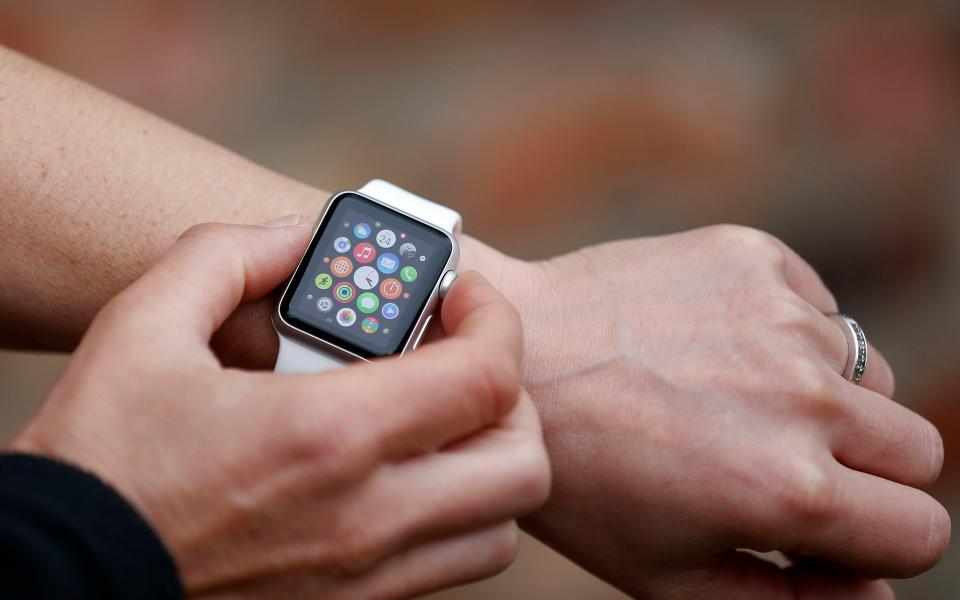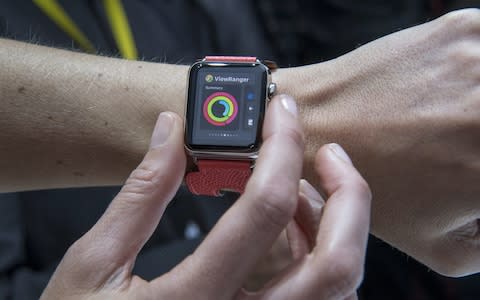Australian woman charged with murder after police use evidence from Apple Watch

An Australian woman has been charged with the murder of her mother-in-law after police gathered evidence from the victim's Apple Watch.
Grandmother Myrna Nilsson, 57, who was born in the Philippines, was found dead in the laundry room of her Adelaide home in September 2016.
Her daughter-in-law, Caroline Dela Rose Nilsson, was arrested after police analysed the smartwatch data which they say shows she fabricated her story of a violent break-in, ABC News reports.
Prosecutors say the Apple Watch data “is a foundational piece of evidence for demonstrating the falsity of the defendant’s account to police”.
The 26-year-old is accused of staging a home invasion, having told police that a group of men had forced their way into the property.
She maintains that they followed the victim home from her workplace and were arguing with her outside the property for around 20 minutes.
A neighbour alerted police after the suspect emerged from the property bound and gagged in a deeply distressed state at around 10pm on the day of the murder.
Ms Nilsson maintains she did not hear the murder as she was tied up in the kitchen with the door closed. However prosecutors say the Apple Watch data contradicts her story and suggests her mother-in-law was ambushed shortly after she arrived home.

“The deceased must have been attacked at around 6:38pm and had certainly died by 6:45pm,” prosecutor Carmen Matteo told a bail hearing.
“If that evidence is accepted, it tends to contradict the accused’s version of an argument occuring between the deceased and these men outside the laundry [room] for a period of up to 20 minutes.
“Her emergence from the house was well after 10pm and if the Apple iWatch evidence is accepted, that is over three hours after the attack on the deceased.
“That represents time within which to stage the scene … and represents time to clean up and discard bloodied clothing.”
Prosecutors say data from the Apple Watch, which measures the wearer’s heart rate throughout the day, disproves her version of events.
“This defendant did not foresee that the police would be able to discern time of death and other information from that device,” added Ms Matteo.
Ms Nilsson has been denied bail and is scheduled to stand trial in June. Wearable technology and health app data has been increasingly used as evidence in murder trials in the US and Europe.
In January, data from Apple’s Health app was used at a trial in Germany over the rape and murder of 19-year-old medical student Maria Ladenburger.
The data, logged on the app as “climbing stairs”, could correlate to her killer, Hussein Khavari, dragging his victim's body down a riverbank, police said. He was found guilty and given the maximum sentence of life imprisonment.

The Fitbit data suggests his wife, Connie Dabate, was moving around for an hour after her husband claimed she was murdered by an intruder. He denies the murder.
“It is an electronic footprint that tracks your movements. It is a great tool for investigators to use,” said Craig Stedman, the Connecticut district attorney.
“We can also get the information much faster than some other types of evidence such as DNA tests.”
Earlier this year, a Wisconsin judge ruled that step-counting data from a Fitbit could be used in a murder trial, but ruled out data related to sleep-monitoring.

 Yahoo Finance
Yahoo Finance 